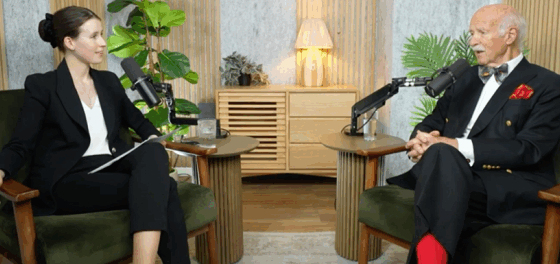Do we need regulations about regulations? Let’s just fix payments already, we can. And the debate about the endless stream of hotels brands. Maybe it’s OK after all.
Hello,
Autumn came early in Paris, and summer came pretty late. As a frenchman, I think I need to complain. But I’ll refrain from doing that. Here’s the newsletter, have a great read. BTW: Share this newsletter with a friend.
Podcast: I was invited on the Hospitality Daily Podcast and spoke about technology in hospitality, some thoughts on what wont change in hospitality, and why I co-founded 10minutes.news.
Best, Martin
About me: I'm a fractional CMO for large travel technology companies helping turn them into industry leaders. I'm also the co-founder of 10minutes.news a hotel news media that is unsensational, factual and keeps hoteliers updated on the industry – also it is the most read hotel newsletter in Europe. See the international edition of the newsletter and subscribe to it here or listen the weekly update here. Support the newsletter, treat yourself to great office gadgets.
Regulating regulations
There is no question we need regulations, history has shown that we can’t let corporations run amok without regulation. Financial motivation and common sense just don’t mix very well. But recently in Europe it seems regulations are running amok. And I agree it is a little dramatic, sorry. I run a lot of idea sessions, turning ideas into reality is hard. The instinctive reaction is to find holes and kill the idea, it isn’t that hard to do. I honestly think anyone can become great at finding logical reasons why ideas aren’t good. So while regulations are a necessity, they also kill ideas. Regulating vague concepts like AI and other nascent technology is going to kill great ideas. If the most successful businessmen and analysts can’t quite figure out where the technology is going to go (and they work with it every day) it is quite unlikely that regulators who aren’t using it can figure it out. In short, I don’t believe we can pre-regulate. But we need to be faster at post-regulating. PS: We’ve been trying to regulate rate-parity for a decade or so, nobody has yet figured it out. The DMA has hurt more than it helped the ones it was trying to help. GDPR is still quite vague and has made it easier for the big data collectors to grow and harder for small companies to get bigger. In short Europe is regulating its way to less competition.
DRAGHI REPORTS
Tesco building tech, hotels aren’t
Tesco is investing in growing their in-house technology team. Hotels are moving out of doing that. I used to think hotel chains were essentially technology companies. They sell the know-how (we can call it technology) of building and running hotels at scale. In that framework it would make sense that they would also build their own IT. But most of them tried, failed and are moving towards third party tech. I’m sure people smarter than me can properly study that and find the real reason. I think it is because hotel chains are essentially franchise companies, their goal is to sell licenses and that works well for them. But then so is McDonalds, and they’re doing pretty good with tech.
TESCO GROWING TECH + MCDONALDS TECH
So many hotel brands
There are a lot of hotel brands, in fact if they were real brands – maybe it would be a problem. In reality I don’t think it is a real problem. The hotel industry doesn’t build brands, we build labels. If the hotel has a label and is part of a bigger group it has done it’s job. As long as the price and location are about right, the fact that it has a label means there are certain standards. Someone told me the other day “I only book in american chains because I know their AC standards will be as I expect them”. I can’t fault him. I booked in a non-American chain and they told me that “central AC was turned off as we were nearing autumn”. So it is a Doubletree or a Courtyard, I don’t care so much (I’m not a points guy) – I know there are standards to maintain and that’s enough for me.
BRAND PROLIFERATION
Payments, let’s just do it
A report came out last week about the slow adoption of payments technology in hotels. I’ve mentioned this a few times over the years. Integrated payments and smarter workflows alone are the lowest hanging fruits that will result in the biggest improvement of guest experience. Of course, as I mentioned above, some smart fellow in a meeting will find a logical reason why we must demand that every guest go through an obstacle course to check-in and check-out. But as one great creative said “Tell the Devil’s Advocate in the room to go to Hell.” It’s time we just do it. We literally have all the tools and systems it takes a tiny bit of courage and the impact on guest experience is better than any cucumber waiting-water you have ever tasted.
PAYMENT TRENDS + INTEGRATED PAYMENTS
TikTok ad tips
TikTok pioneered interest based feeds rather than social based feeds. Today most of the platforms are moving that way. What this means is that the system will show you things based on your interest rather than based on who you follow. This makes it easier for people interested in hotels in the outback to find them. Rather than have to search for them. But there’s still a method to the madness of posting and advertising on the platform. According to this study most do it wrong, and they provide tips on how to fix it.
TIKTOK MARKETING
THOUGHTS:
Payments and Guest Experience
In the hotel industry, payments and transactions are the worst part of the guest experience. Uber, Airbnb, Amazon removed payments completely and exponentially increased customer experience. BTW, Amazon did this over 20 years ago!
We claim to be guest-first businesses. But when someone waits in line to be served, who is first? The hotel’s process or the guest? And when someone needs to move to some pre-determined counter to check-in, who is first?
The absurdity of the process is even comical. The guest already gave their payment data when they made the booking. We ask for it again why? To show them who’s the boss?
“We’ve always done it this way”… isn’t that what the Taxi industry used to say?
This isn’t about putting some contactless payment terminal in the lobby. It is time to really re-think some processes.






